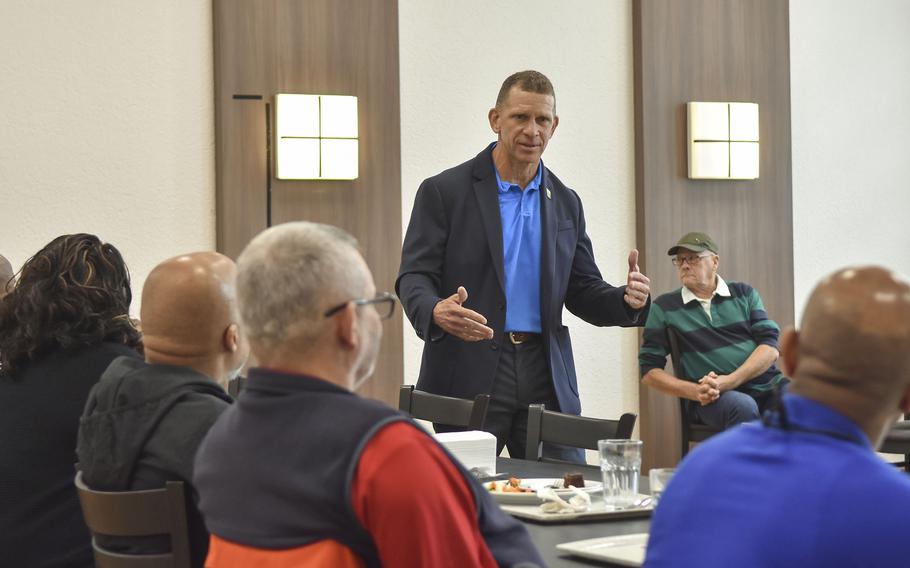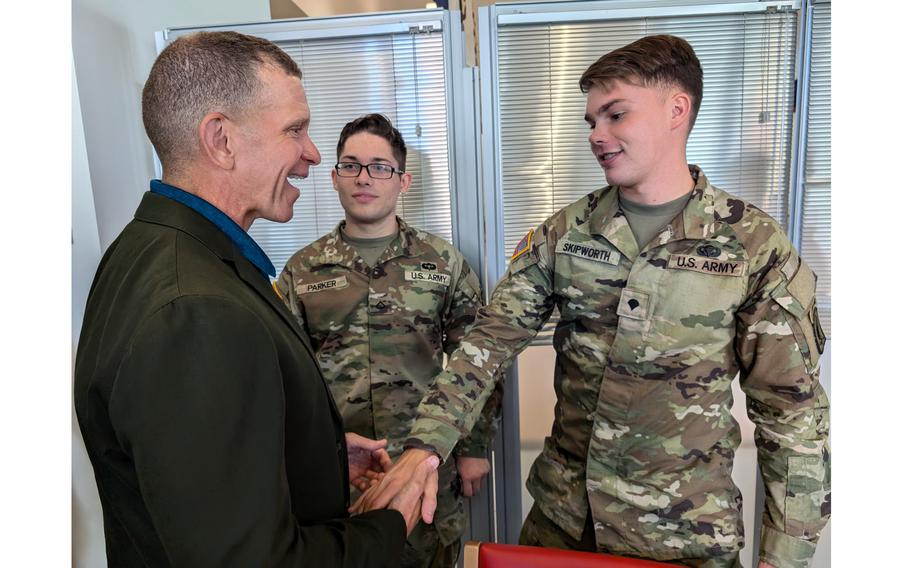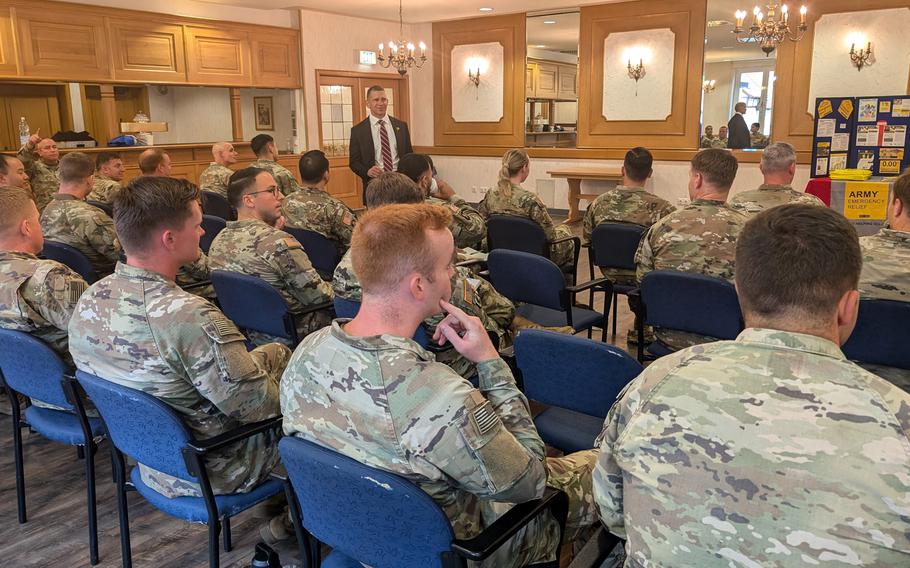
Army Emergency Relief CEO Tony Grinston speaks with military retirees during a luncheon at Clay Kaserne in Wiesbaden, Germany, on Sept. 13, 2024. Grinston visited Army communities in Italy and Germany last week to raise awareness of the agency’s assistance programs. (Bradley Latham/Stars and Stripes)
WIESBADEN, Germany — Soldiers who receive emergency travel money from Army Emergency Relief would no longer have to pay back half the awarded amount if a change advocated by the agency’s leader is approved.
The nonprofit aims to switch payouts for emergency travel purposes to a 100% grant, ending its practice of splitting the sum equally between a grant and a no-interest loan, CEO Tony Grinston said recently during a tour of bases in Europe.
Grinston, who retired as the 16th sergeant major of the Army last year, acknowledged that the added support for soldiers comes with a cost.
Although the 15.3% participation rate and $3.1 million raised in this year’s active-duty donation campaign were the highest in the last five years, the organization would have an estimated $3 million deficit if it switched to full grants, Grinston said.
While changes to programs need approval from the board of directors, Grinston said he aims to implement the grant policy by January 2025.
“Money is a very interesting conversation that we always have,” Grinston said Friday at Clay Kaserne in Wiesbaden. “We will always give more money than we take in as long as I’m the CEO.”

Tony Grinston, the CEO of Army Emergency Relief, shakes hands with Spc. Nathan Skipworth during a visit to Vicenza, Italy, on Sept. 9, 2024. Grinston visited Army communities in Italy and Germany last week to promote the organization. (Army Emergency Relief)
The relief fund took in $32.4 million against $33.7 million in expenses in 2022, according to its most recent tax filing posted online. It had total assets of $359 million.
Charity Navigator, which rates and evaluates nonprofits, has awarded Army Emergency Relief a near-perfect score on metrics such as financial health, impact and leadership.
About 32,000 soldiers and families received assistance last year, according to the nonprofit.
Army Emergency Relief is also exploring initiatives for soldiers stationed in Europe, Grinston said.
They include assistance with upfront costs for off-post medical expenses, a car seat program and holiday food assistance in Grafenwoehr.
Last week’s trip was the first for Grinston to installations in Europe since he became the top executive of the Army’s official nonprofit in January.
His visit included stops in Vicenza, Grafenwoehr and Wiesbaden to promote the nonprofit and explore opportunities to support soldiers stationed abroad.

Tony Grinston, the CEO of Army Emergency Relief, speaks with unit command teams in Grafenwoehr, Germany, on Sept. 11, 2024. Grinston’s visit last week to Army bases in Italy and Germany was his first to Europe of his tenure as the head of the Army’s nonprofit agency. (Army Emergency Relief)
Grinston is the first retired enlisted soldier to be named CEO of the agency since its establishment in 1942.
As part of his visit to Wiesbaden on Friday, Grinston hosted a lunch with military retirees to answer questions and thank them for their donations and contributions to the program.
So far in 2024, military retirees have donated $2.8 million, or 36.6% of all contributions, according to the agency.
Retirees and their dependents are eligible for Army Emergency Relief support along with active-duty soldiers and Army Reserve and National Guard soldiers on Title 10 orders for more than 30 days.
Above all, Grinston said he wants to promote Army Emergency Relief as the top choice for eligible soldiers and families.
“I’m really proud of the direction we’re going,” he said. “We’re really trying to help soldiers and really want AER to be the first thought when people need assistance.”